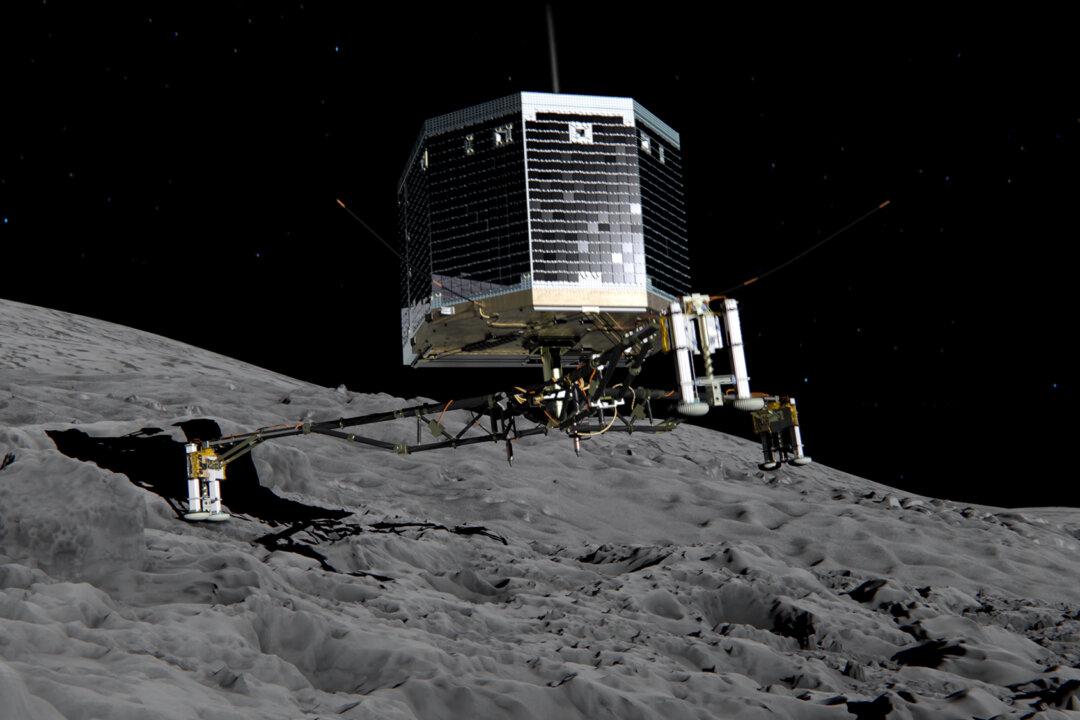In November of 2014, the Philae robotic lander made history by successfully alighting on the P67 comet.
Now, it might make history again, by becoming the first lander to become permanently lost on a comet. The Philae has stopped responding to signals from its mothership, the Rosetta, since July of 2015, and scientists from the European Space Agency (ESA) are grim about the prospects of recovery.
“The chances for Philae to contact our team at our lander control center are unfortunately getting close to zero,” Stephan Ulamec, Philae project manager at the German Aerospace Center, said in a statement on Feb. 12. “We are not sending commands any more and it would be very surprising if we were to receive a signal again.”

This image of comet 67P/Churyumov–Gerasimenko was taken by the Philae lander of the European Space Agency's Rosetta mission during Philae's descent toward the comet on Nov. 12, 2014. ESA/Rosetta/Philae/DLR





